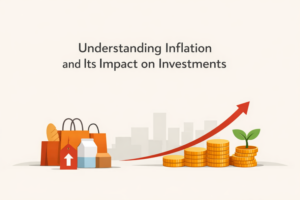What is Insider Trading?

Individuals participate in insider trading by buying or selling a company’s stocks or bonds based on significant, non-public information that is not accessible to the general public. This raises serious concerns because it gives some investors unfair advantages over others.
People with insider knowledge may take advantage of it, while others remain uninformed. This hurts investor trust in financial markets. Many believe that this unfairness hinders the overall investing process. Let’s learn all about insider trading.
Introduction
Individuals engage in insider trading when they buy or sell company stocks using non-public information about the company. Regulatory frameworks have been developed to address this issue, as it has the potential to erode market confidence.
Definition of Insider Trading
Insider trading occurs when someone buys or sells securities using significant, non-public information. It comprises those who have access to news before it becomes public, including mergers, earnings, acquisitions, or strategic plans. Such trading contradicts the responsibility to be fair in financial markets and gives ordinary investors an unfair advantage.
Why is Insider Trading Controversial?
First of all, it creates an unfair playing field, allowing individuals with inside information to profit at the expense of other investors. Investor trust declines, compromising market integrity. Moreover, these actions can severely damage an organization’s or an individual’s image upon discovery, potentially deterring further investment.
How Insider Trading Works
Obtaining or disclosing private information and trading on the information before it is public knowledge. Scalping, front-running, tipping, or engaging in transactions without permission are all examples of unethical practices in financial markets.
Who is Considered an Insider?
Directors, officials, and key staff members of a business—often referred to as connected persons—are typically considered insiders. Nonetheless, the phrase also refers to anybody who has had Unpublished Price Sensitive Information (UPSI) due to family or professional relationships. If they trade or disclose that UPSI, consultants, lawyers, auditors, or outside advisors who get sensitive information might also be regarded as insiders.
What is Unpublished Price Sensitive Information (UPSI)?
UPSI represents specific, non-public knowledge that can significantly impact share prices if disclosed. Financial results, dividends, significant mergers or acquisitions, buybacks, substantial profit warnings, or regulatory approvals are a few examples. SEBI regulations state that information known by others before public dissemination qualifies as UPSI.
Legal vs. Illegal Insider Trading
Insider trading is not always prohibited. When insiders abide by the rules—disclosing transactions, trading during allowed windows, adhering to blackout periods, and refraining from employing UPSI—legal insider trading occurs. Illegal insider trading, on the other hand, occurs when transactions are made using secret knowledge outside of authorized trading plans or before disclosure, or when information is exchanged illegally.
Insider Trading Laws in India
India has gradually expanded its legal framework to address insider trading more effectively, and now, tighter regulations aim to preserve the integrity of equity markets.
SEBI Regulations on Insider Trading
India derives its insider trading rules from the SEBI (Prohibition of Insider Trading) Regulations, 2015, which superseded the earlier 1992 rules. These regulations define who qualifies as an insider or a connected person, outline what constitutes UPSI, and set rules to prevent misuse.
Some behaviours are specifically prohibited, including scalping, front-running, tipping, and information theft. Companies must comply with Regulation 8 and Schedule II by maintaining digital databases for UPSI holders, mandated trading plans, blackout periods, insider disclosures, and codes of conduct.
Penalties and Punishments for Insider Trading
Violations lead to hefty penalties. Section 15G of the SEBI Act imposes penalties that include a monetary fine of at least Rs. 10 lakh, reaching up to Rs. 25 crores or three times the profit earned, whichever amount is greater. Additionally, it may involve the recovery of unlawful gains and the imposition of bans on market participation. SEBI imposes interim bans and refers matters for criminal prosecution.
Recent Cases of Insider Trading in India
High-profile insider trading cases in India recently involved executives from IndusInd Bank. SEBI imposed significant penalties, including disgorgement and trading bans. These cases underscore the importance of regulatory vigilance and corporate accountability in preventing the misuse of unpublished, price-sensitive information for personal financial gain.
Examples of Insider Trading
Prominent episodes around the world and in India demonstrate how the misuse of non-public information leads to serious consequences, often attracting regulatory scrutiny and media attention.
Global Insider Trading Cases (e.g., Raj Rajaratnam)
Major global scandals involved individuals like Raj Rajaratnam, who spearheaded a case in the US involving the Galleon Group’s insider trading ring. This demonstrates large-scale tipping, front-running, and misappropriation of UPSI, illustrating how cross-border enforcement extends to individuals far beyond the borders of a single country.
High‑Profile Insider Trading Cases in India
In India, Infosys CEO Salil Parekh paid ₹25 lakh to settle allegations of insufficient internal controls for preventing insider trading in compliance with SEBI rules. In another instance, SEBI investigated and barred several IndusInd Bank executives from trading after they allegedly sold shares while being aware of undisclosed accounting discrepancies. Furthermore, SEBI recently accused Pranav Adani of sharing unpublished information about a significant acquisition with relatives who traded before the public announcement, which triggered further scrutiny.
How to Identify Insider Trading Activities
To detect insider trading, it is crucial to monitor market behavior and disclosure patterns closely. Signs of suspicious activity may indicate potential issues before key financial events or public announcements, even if they are not always immediately apparent.
Stock Price Movements Before Major Announcements
Price hikes or drops before major news—such as earnings announcements, mergers, or regulatory approvals—often signal insider trading. A spike in price typically occurs hours or days before the announcement is made. Observers must watch for unexplained price changes.
Unusual Trading Volumes and Patterns
Abnormal trading volume, primarily linked to information leaks, suggests insider behavior. Sudden surges often occur before official statements, as accounts engage in heavy activity that later unwinds positions.
Regulatory Disclosures and Reporting
Insiders make regulatory filings under SEBI regulations, which serve as key indicators of their activities. Connected persons must provide mandatory disclosures within prescribed timelines, marking essential landmarks. Additionally, whistleblower reports and SEBI’s surveillance data, including structured digital databases, play a critical role.
Impact of Insider Trading on the Market
Insider trading has far-reaching consequences beyond individual profit. It affects market fairness, investor trust, and the integrity of financial and regulatory organizations.
Investor Confidence and Market Integrity
Investor trust declines when they perceive that insiders hold an unfair advantage. Participation erodes, retail investor interest reduces, and liquidity may be depressed. Transparency ensures market integrity; any belief that insiders can sway outcomes undermines overall confidence.
Consequences for Companies and Individuals
Companies involved in insider trading allegations risk losing their reputation, witnessing a decline in share value, and facing increased scrutiny. Individuals face significant penalties, such as a ban from trading or working in financial markets, and even imprisonment in certain situations.
How to Report Insider Trading
Report insider trading suspicions through official channels. Whistleblowers enjoy protection through confidentiality provisions and legal safeguards that promote transparency and accountability in financial markets.
Whistleblower Protections and Reporting Channels
SEBI encourages whistleblowers to use online portals and complaint channels, which provide anonymity and safety. Report any suspicious transactions or the distribution of UPSI using secure reporting mechanisms, including anonymous ones.
Role of SEBI and Other Regulatory Bodies
SEBI takes a central role by receiving complaints, investigating suspicious trades through surveillance data and forensic reviews, issuing show-cause notices, and imposing penalties or bans. Courts or prosecutorial agencies may also get involved. Appellate authorities, such as the Securities Appellate Tribunal (SAT), actively review decisions when parties file an appeal.
Conclusion
Insider trading involves using unpublished price-sensitive information to trade shares, but misusing UPSI constitutes illegal activity. The SEBI (Prohibition of Insider Trading) Regulations, 2015, outline insiders, UPSI, prohibited practices, disclosure standards, and compliance systems in India.
Violations result in disgorgement, market bans, and substantial fines. Recent incidents in India demonstrate that enforcement remains vigorous, with frequent settlements and regulatory rulings. Preventing insider trading protects investors, maintains market integrity, and promotes fairness and transparency.
FAQs
What is the meaning of insider trading?
Purchasing or selling shares based on substantial, non-public information often involves individuals with fiduciary or confidential access to the information.
Is insider trading legal in India?
Legal insider trading is permitted under SEBI guidelines. However, it is legal only when conducted in compliance with SEBI rules—trading within designated windows, following public disclosure, and after obtaining approval. It is illegal under SEBI regulations otherwise.
Who can be considered an insider in the stock market?
Insiders consist of directors, officers, senior management staff, related parties, and anyone who acquires UPSI in a professional or personal capacity, including consultants or fiduciaries.
How does SEBI regulate insider trading in India?
SEBI enforces the SEBI (Prohibition of Insider Trading) Regulations of 2015. Defining insiders and UPSI, prohibiting tipping and front-running, and mandating codes of behavior, digital databases, pre-clearance, blackout periods, and disclosures. The investigation of breaches and enforcement of penalties under the SEBI Act takes place.
What are the penalties for insider trading in India?
Penalties impose monetary fines ranging from a minimum of ₹ 10 lakh to ₹ 25 crore or three times the profit made. They also involve disgorgement of gains, bans from market activities, and potential criminal proceedings.
Can company employees buy and sell shares of their own company?
Yes, they must follow SEBI guidelines, which include trading within permissible windows, avoiding blackout times, obtaining pre-clearance, and refraining from employing UPSI.
How can I report suspected insider trading activity?
SEBI operates a whistleblower portal and complaint channels that enable confidential or anonymous reporting. Submit details of suspicious trades or information sharing.
What is the impact of insider trading on stock prices?
Insider trading causes stock prices to move sharply before public disclosure, creating volatility and depriving ordinary investors of fair pricing. Moreover, this undermines confidence and market integrity.
Disclaimer
The stocks mentioned in this article are not recommendations. Please conduct your own research and due diligence before investing. Investment in securities market are subject to market risks, read all the related documents carefully before investing. Please read the Risk Disclosure documents carefully before investing in Equity Shares, Derivatives, Mutual fund, and/or other instruments traded on the Stock Exchanges. As investments are subject to market risks and price fluctuation risk, there is no assurance or guarantee that the investment objectives shall be achieved. Lemonn (Formerly known as NU Investors Technologies Pvt. Ltd) do not guarantee any assured returns on any investments. Past performance of securities/instruments is not indicative of their future performance.







